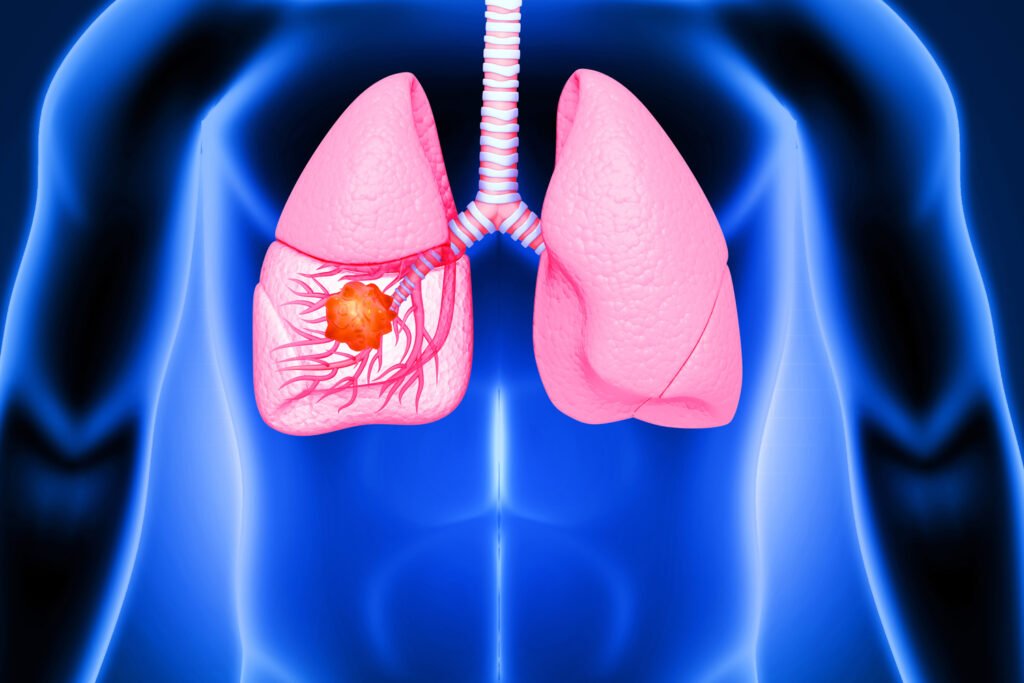Dr. Shilpa Gandhi | Leading Consultant Minimally Invasive Thoracic Surgeon In Nagpur
Meet Our Doctor
Dr. Shilpa Gandhi
MBBS, DNB General Surgery DNB Thoracic Surgery
Dr. Shilpa Gandhi is a trusted and experienced healthcare professional known for her compassionate care and expertise. Committed to delivering personalized treatments and improving patient well-being.


Lung Cancer Surgery
When it comes to treating lung cancer, lung cancer surgery plays a crucial role in improving survival rates and quality of life. It is often recommended for patients diagnosed with early-stage lung cancer or in cases where the tumor is localized and can be safely removed. With advancements in surgical techniques and technology, lung cancer surgery has become more precise, effective, and less invasive. Here’s a complete guide to lung cancer surgery and why it’s a cornerstone of cancer treatment.
Lung cancer is one of the most common and life-threatening cancers worldwide, but advancements in medical technology have made lung cancer surgery a leading treatment option for many patients. For those diagnosed in the early stages or with localized tumors, surgery can significantly improve survival rates and overall quality of life. This comprehensive guide will help you understand lung cancer surgery, its benefits, and why it’s a vital component of lung cancer care.
What Is Lung Cancer Surgery?
Lung cancer surgery is a medical procedure that involves the removal of cancerous tissues from the lungs. It is typically performed when the cancer is confined to the lungs and hasn’t spread extensively to other parts of the body. The goal is to remove the tumor, nearby affected tissues, and sometimes lymph nodes to ensure the cancer is entirely eradicated.
Types of Lung Cancer Surgery
Several surgical options are available depending on the size, location, and stage of the tumor:
- Lobectomy: The most common type of surgery, involving the removal of an entire lobe of the lung containing the tumor.
- Pneumonectomy: Removal of one entire lung when the tumor is extensive but still localized.
- Segmentectomy (Wedge Resection): Removal of a small part of the lung when the cancer is detected early and hasn’t spread.
- Sleeve Resection: Removal of a tumor in the airways while preserving as much healthy lung tissue as possible.
Each surgery type is tailored to the patient’s unique condition, ensuring the best possible outcomes.
Who Is a Candidate for Lung Cancer Surgery?
Not all patients with lung cancer are eligible for surgery. Your healthcare provider will evaluate your:
- Cancer stage (usually stages I and II are best suited for surgery).
- Overall health and lung function.
- Tumor location and whether it can be safely removed.
- Risk of cancer recurrence.
For advanced stages, surgery may be combined with other treatments like chemotherapy, radiation, or immunotherapy.
Benefits of Lung Cancer Surgery
- Potential Cure: For early-stage lung cancer, surgery offers the best chance of removing the cancer completely.
- Improved Survival Rates: Surgical intervention significantly increases life expectancy for eligible patients.
- Symptom Relief: Surgery can alleviate symptoms like chest pain, breathing difficulties, or coughing caused by tumors.
Preparing for Lung Cancer Surgery
Proper preparation ensures a smoother surgical process and recovery. Here’s what to expect:
- Pre-Surgical Testing: Tests like CT scans, PET scans, pulmonary function tests, and biopsies help determine surgical eligibility.
- Medical Team Consultation: Discuss potential risks, recovery plans, and long-term care with your surgeon and oncologist.
- Lifestyle Adjustments: Quitting smoking, improving nutrition, and increasing physical activity (if possible) can enhance surgical outcomes.
Recovery After Lung Cancer Surgery
Recovery varies based on the type of surgery or the patient’s health. Key recovery tips include:
- Following your surgeon’s post-operative care instructions.
- Attending regular follow-ups to monitor healing and check for recurrence.
- Gradually resuming physical activities as advised by your medical team.
Why Is Lung Cancer Surgery Important?
Surgery is often the best option for treating early-stage lung cancer. When performed by a skilled thoracic surgeon, it can:
- Remove the Cancer Completely: Providing a potential cure for patients with localized lung cancer.
- Improve Breathing: Relieving symptoms caused by a growing tumor.
- Prolong Survival: Particularly in cases where surgery is performed early.
- Enhance Quality of Life: Allowing patients to return to normal activities after recovery.
Types of Lung Cancer Surgery
The type of surgery recommended depends on the stage or location of the tumor, as well as the patient’s overall health. Common procedures include:
Lobectomy
- Removal of one lobe of the lung where the tumor is located.
- The most commonly performed surgery for lung cancer.
Pneumonectomy
- Removal of an entire lung.
- Typically done when the tumor is large and centrally located.
Segmentectomy or Wedge Resection
- Removal of a small portion of a lung.
- Ideal for patients with small, early-stage tumors or limited lung function.
Sleeve Resection
- Removal of part of the airway along with a tumor.
- Used to preserve lung tissue while treating the cancer.
Conclusion:
Lung cancer is a serious diagnosis, but surgical advancements have given patients a new lease on life. By removing cancerous tissue and providing targeted treatment, lung cancer surgery offers hope for recovery, improved quality of life, and long-term survival. If you or a loved one are facing lung cancer, don’t hesitate to reach out for professional guidance and care.



